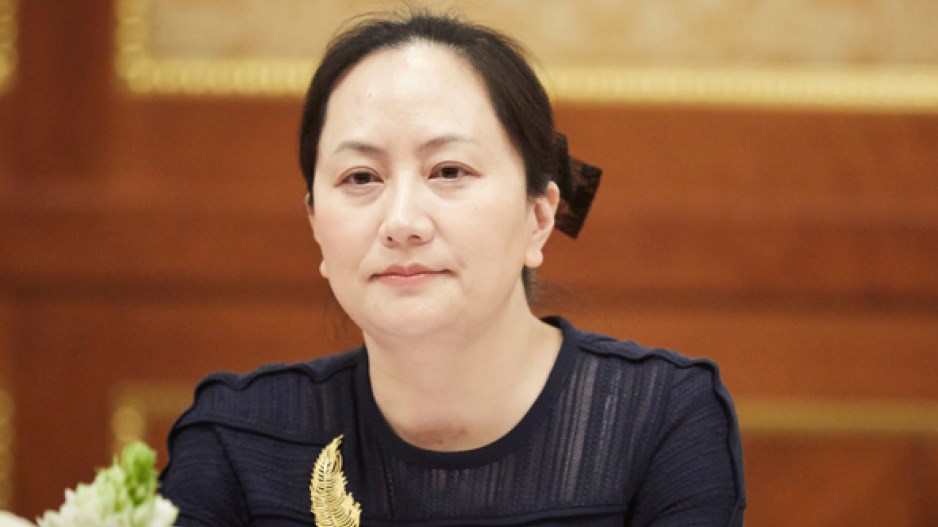Huawei Technologies Co. Ltd. CFO Meng Wanzhou was in BC Supreme Court Tuesday (January 29) to alter conditions of her bail and set new court dates following a 13-count indictment from the U.S. Department of Justice.
Meng’s lawyer David Martin applied to alter her sureties, who contributed to Meng’s $10 million bail. It was noted one surety wanted to be released while another, Robert Cheng, required more cash to compensate for the old surety but also because of a decline in property value to Cheng’s home.
March 1 is the deadline for the Canadian government to proceed with extradition proceedings. The court set a new date for March 6.
Meng's defense team has been expanded to include Peck and Company and Fenton, Smith Barristers.
The court appearance followed the formal announcement by U.S. authorities on January 28 of their charges against Meng, accusing the Chinese tech executive and the company of stealing trade secrets in addition to the wire-fraud accusations originally outlined in December.
In an announcement by acting Attorney General Matthew Whitaker, the U.S. Justice Department’s Western District of Washington State unsealed a 10-count indictment, stating that Meng and Huawei are charged with theft of trade secret conspiracy, attempted theft of trade secrets, seven counts of wire fraud and one count of obstruction of justice.
Meng, who was arrested at Vancouver International Airport on December 1, remains on house arrest in Vancouver while awaiting her extradition hearing in February.
“As I told Chinese officials in August, China must hold its citizens and Chinese companies accountable for complying with the law,” Whitaker said in the news conference.
The indictment says that the central allegation of stealing trade secrets came from an incident in 2012, when Huawei began “a concerted effort” to steal information on “Tappy,” a phone-testing robot developed by Bellevue, Wash.-based T-Mobile USA. Investigators allege that Huawei took measurements and photos of Tappy and stole a piece of the robot to reverse-engineer the device for testing Huawei phones prior to shipping to companies like T-Mobile.
U.S. authorities also alleged that, when T-Mobile discovered the theft, Huawei countered by saying the incident was the work of “rogue actors within the company” and not a concerted effort by Huawei. U.S. investigators also said that emails obtained through the investigative process showed that the theft was a “company-wide” effort.
Some e-mails, the indictment alleged, offered Huawei employees bonuses based on the value of information they stole from other firms.
The trade-secret theft charges come in addition to the original reasons provided to Canadian authorities on Meng’s arrest, which centred on Huawei allegedly breaching U.S. trade sanctions in Iran by doing business there though a subsidiary, then moving the proceeds of said sales through the American financial system.
Huawei has denied any wrongdoing.
“This indictment shines a bright light on Huawei’s flagrant abuse of the law – especially its efforts to steal valuable intellectual property from T-Mobile to gain unfair advantage in the global marketplace,” said Annette L. Hayes, First Assistant U.S. Attorney of the Western District of Washington, at the news conference. “We look forward to presenting the evidence of Huawei’s crimes in a court of law, and proving our case beyond a reasonable doubt.”
The Huawei incident has put the Canada-China relationship on deep freeze, with Beijing arresting three Canadian citizens in the country - moves widely seen by observers as retaliation. Over the weekend, Canada’s ambassador to China John McCallum was forced to resign after making comments that Meng has a “strong” case for legal defence against extradition.
– With file from Graeme Wood




